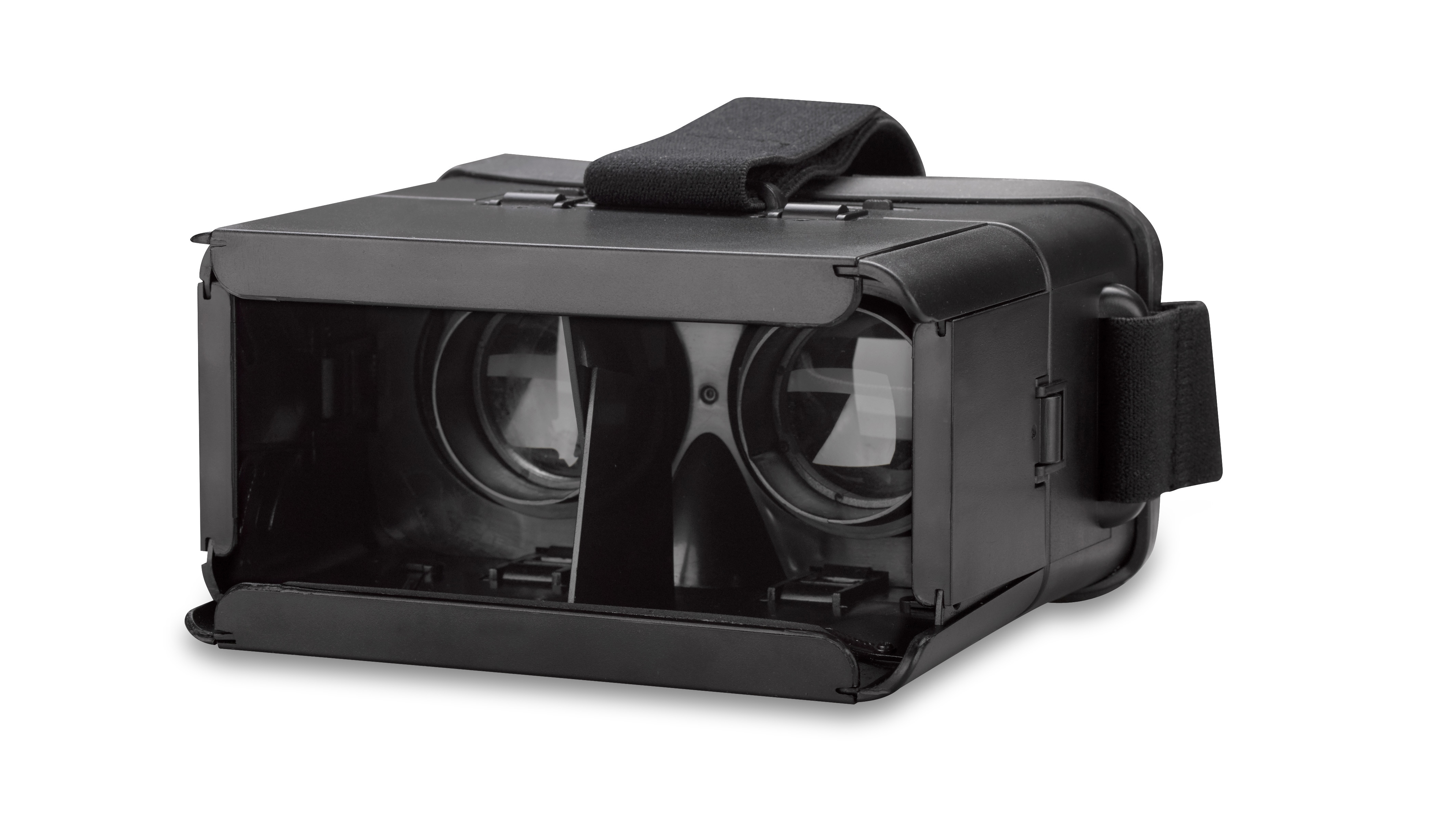Archos tries to undercut Samsung and Oculus with budget VR rival
Archos throws its hat into the virtual reality ring.

Archos is entering the increasingly-crowded virtual reality market with the launch of the Archos VR Glasses.
The glasses will go on sale world wide in November with a price tag of £24.99 ($29.99). Unlike the Oculus Rift or Sony's Project Morpheus, the Archos VR Glasses are aimed at offering a low cost virtual reality experience, similar to Google Cardboard.
Archos VR Glasses should be more robust than cardboard and will be made with a lightweight yet durable material, though further details of the glasses have yet to be disclosed.
Joining the smartphone VR revolution
What we do know is that like Google Cardboard and the Samsung Gear VR, the Archos VR Glasses will connect to a smartphone to deliver virtual reality goodness.
According to Archos, any smartphone up to 6-inches in size will work and you can use any mobile operating system, be it Android, iOS or Windows Phone.
The recommended requirements for the Archos VR Glasses is a smartphone with a full high definition screen that's at least 5-inches in size with a quad core processor and motion sensors such as an accelerometer and gyroscope.
This means that recently released handsets such as the iPhone 6 Plus and the Nexus 6 would be ideal for Archos' virtual reality headset.
Get daily insight, inspiration and deals in your inbox
Sign up for breaking news, reviews, opinion, top tech deals, and more.
The headset will be compatible with over 100 virtual reality apps and a future update to the Archos Video Player app will let people watch 3D movies in stereoscopic mode.
We won't have too long to wait to try out Archos' virtual reality headset, with a release date pegged for sometime in November.
- Read our thoughts on the Oculus Rift

Matt is TechRadar's Managing Editor for Core Tech, looking after computing and mobile technology. Having written for a number of publications such as PC Plus, PC Format, T3 and Linux Format, there's no aspect of technology that Matt isn't passionate about, especially computing and PC gaming. He’s personally reviewed and used most of the laptops in our best laptops guide - and since joining TechRadar in 2014, he's reviewed over 250 laptops and computing accessories personally.